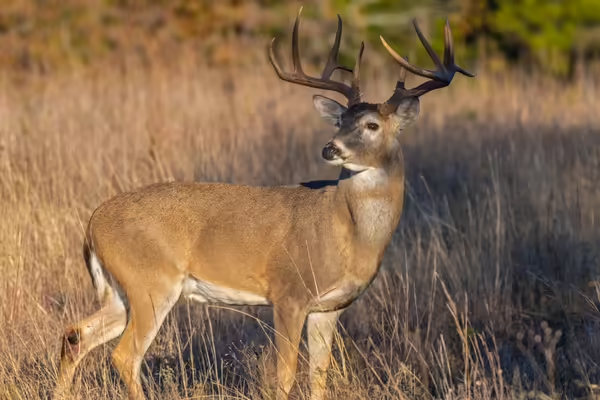
URBANA, Ill. — In response to rising food and meat prices and food pantries' difficulties obtaining meat, University of Illinois Extension and key partners launched the Illinois Deer Donation Program in 2022. This initiative initially covered 12 counties and has combated food insecurity by connecting hunters in East Central Illinois with meat processors and food pantries.
The Illinois Deer Donation Program returns for its third donation season as "Hunters Feeding Illinois." The name change reflects an expanded partnership among Feeding Illinois, Southern Illinois Food Pantry Network, and University of Illinois Extension.
Hunters Feeding Illinois' mission remains to connect hunters, meat processors, and food pantries and support access to lean protein for Illinois residents and families. The expanded partnership now encompasses 16 counties in East Central Illinois and 16 counties in Southern Illinois.
"Around 1 in 8 people in Illinois struggle to access food, with rates higher in two-thirds of the program coverage area," says Caitlin Mellendorf, nutrition and wellness educator. "Protein foods are expensive, and Hunters Feeding Illinois makes it possible for Illinois individuals and families to spend a little less on protein."
The East Central territory includes Champaign, Clark, Clay, Coles, Crawford, Cumberland, DeWitt, Douglas, Edgar, Effingham, Fayette, Jasper, Macon, Moultrie, Piatt, and Shelby counties. The Southern territory includes Alexander, Franklin, Gallatin, Hamilton, Hamilton, Hardin, Jackson, Johnson, Massac, Perry, Pope, Pulaski, Randolph, Saline, Union, White, and Williamson counties.
Hunters Encouraged to Donate Deer: Limited Slots Available
Like in previous years, hunters can donate whole harvested deer at no cost. Partnering meat processors will accept donated deer through the hunting season. Because processing volume increases throughout the season, hunters are encouraged to call processors in advance to confirm they have slots to accept deer. Processors have a select number of slots for donated deer, which becomes more limited as the season continues.
The following meat processors will be accepting deer donations:
Partnering with meat processors in East Central territory:
- River Bend Wild Game & Sausage Company in St. Joseph.
- Moweaqua Packing Plant in Moweaqua.
- Connelly Locker in Martinsville.
- Oconee Chop Shop in Oconee.
- Howe's Custom Deer Processing in Cowden.
- Windy Ridge Processing in Shobonier.
- Blair's Slaughtering and Processing in Louisville.
- Salt and Strings in Louisville.
Partnering with meat processors in the Southern territory:
- R & M Meat Processing in Ellis Grove.
- Birkner's Processing in McLeansboro.
- Sanchez Meat Processing in DuQuoin.
- Shirley Farms Deer Processing in DeSoto.
- Triple C Meats in Anna.
- R & R Deer Processing in Vienna.
Thanks to the collaboration with Feeding Illinois, donations will be doubled dollar per dollar. A $50 donation becomes $100, which covers the processing of one deer. In the 2023 season, the program processed more than 300 deer and provided more than 12,000 pounds of venison to food-insecure neighbors in Illinois.
To donate and learn more about the program, including finding a list of partnering meat processors, visit Hunters Feeding Illinois. Follow the program on Facebook to stay updated on local impacts throughout the season.
SOURCE: Caitlin Mellendorf, nutrition and wellness educator, Illinois Extension
EDITOR: Herbert Chavez, media communications coordinator, Illinois Extension.
University of Illinois Extension develops educational programs, extends knowledge, and builds partnerships to support people, communities, and their environments as part of the state's land-grant institution. Extension serves as the leading public outreach effort for University of Illinois Urbana-Champaign and the College of Agricultural, Consumer and Environmental Sciences in all 102 Illinois counties through a network of 27 multi-county units and over 700 staff statewide. Extension’s mission is responsive to eight strategic priorities — community, economy, environment, food and agriculture, health, partnerships, technology and discovery, and workforce excellence — that are served through six program areas — 4-H youth development, agriculture and agribusiness, community and economic development, family and consumer science, integrated health disparities, and natural resources, environment, and energy.